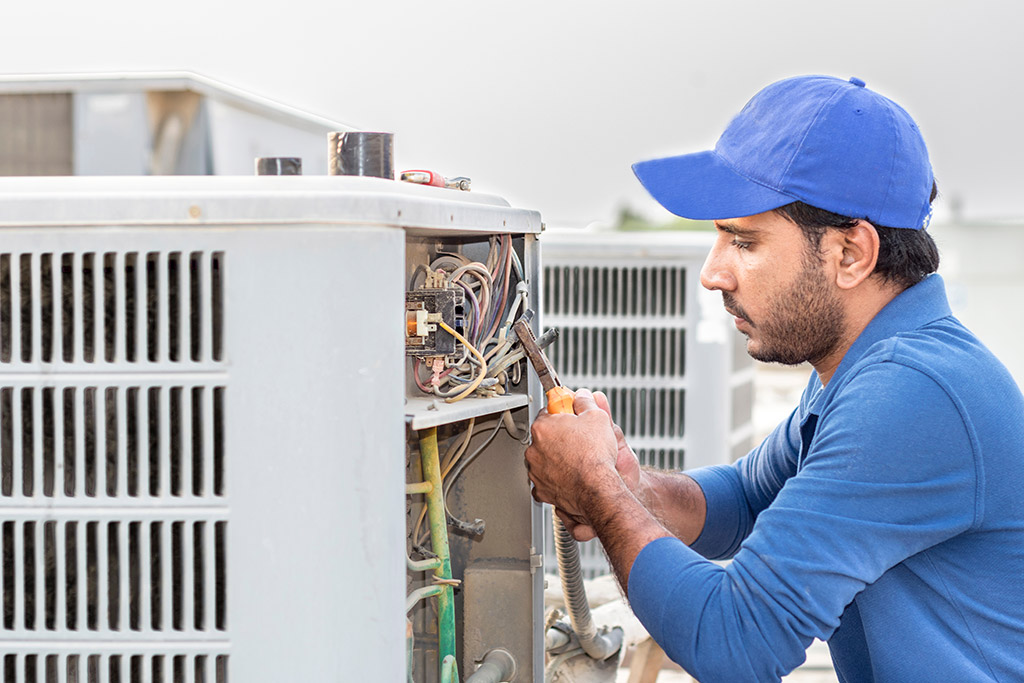Do it yourself HVAC Maintenance: When Give it a go as well as When to Contact a Pro

When it comes to home comfort, not many systems are as vital as your heating, ventilation, and air conditioning system. Comprehending what HVAC is can be the primary step towards ensuring a comfortable domestic atmosphere all year long. Whether you're facing the winter chill or the oppressive summer heat, having a reliable heating and cooling system is crucial for keeping an pleasant indoor atmosphere. In this article, we will delve into everything you need to know about HVAC systems, from their basic functions to typical issues that might arise and how to successfully address them.
Many homeowners might be inclined to address HVAC repairs on their own, notably when dealing with minor problems or common maintenance tasks. Yet, discerning when to make a DIY attempt and when to seek the assistance of a specialist can allow you to avoid both time and money. We will investigate some of the prevalent HVAC issues, provide tips for maintaining your system's efficiency, and underscore the importance of expert assistance in certain situations. Ultimately, this guide, you will be more assured in handling your HVAC system while understanding when to consult the experts.
Understanding Heating, Ventilation, and Air Conditioning Systems
Heating, Ventilation, and Air Conditioning is an acronym for Heating, Ventilation, and Air Conditioning, and plays a vital role in ensuring indoor coziness in residences and commercial spaces. These systems are designed to manage temperature and air quality, ensuring that areas remain comfortable no matter the outdoor conditions. A basic HVAC system typically includes elements such as a furnace for heating, an AC unit for cooling, and a fresh air exchange system to distribute air and refresh indoor atmospheres.
The working of these systems is founded on the laws of heat transfer and airflow dynamics. Heating is accomplished through different methods, such as natural gas, electricity, or oil, while cooling is primarily accomplished through coolants circulating in the system. Ventilation ensures fresh air enters a space while expelling stale air, which is important for comfort and well-being. Understanding how these components work collaboratively can help individuals effectively handle their systems and spot concerns early on.
Routine maintenance and knowledge of how to manage these systems can lead to increased efficiency and prolonged lifespans. Basic actions such as changing air filters consistently, keeping vents open, and scheduling professional check-ups can greatly enhance system performance. By understanding the basics of heating and cooling, people can make informed decisions about their HVAC needs, contributing to a more pleasant and efficient living environment.
Typical Heating, Ventilation, and Air Conditioning Issues and Resolutions
One of the more frequent problems homeowners experience is a deficiency of heating or cooling. This problem can stem from various sources, such as a clogged air filter, which hinders airflow and decreases the unit’s effectiveness. To fix this, consistently examine and change air filters every one to 3 months, according to how often it's used. Additionally, reviewing the thermostat settings and ensuring that the unit is set to the appropriate temperature can help alleviate the problem. If issues continue, it may be necessary to inspect for refrigerant leaks or call a technician.
Another common issue is unexpected noises coming from the HVAC system, such as banging, hissing, or grating sounds. These noises can signal unsecured parts, worn-out bearings, or problems with the compressor. Homeowners can begin by securing loose components and making sure that all access panels are firmly in place. If the noises continue, it might be appropriate to call an HVAC technician to diagnose and repair any root mechanical problems.
In conclusion, inconsistent temperatures throughout the home can be a irritating issue. This can result from poor insulation, blocked vents, or issues with the ductwork. To enhance AC installation , confirm that vents are not cluttered by furniture or any items. Sealing any leaks in ductwork can also promote more even heating and cooling. For more severe airflow problems or ongoing discomfort, it may be wise to reach out to a professional to evaluate and improve the overall HVAC system and home insulation.
Optimizing Energy Use and Maintenance Tips
To enhance the performance of your HVAC system, consider getting a digital thermostat. These devices allow you to program specific temperatures for various times of the day, maximizing energy use while providing comfort. For example, you can set your thermostat to reduce heating or cooling when you are not home, thus reducing energy and cutting your utility bills.

Routine maintenance is crucial for maintaining your HVAC system functioning efficiently. Arrange seasonal tune-ups to confirm that all components are in proper condition. During these inspections, professionals can service coils, check ducts, and change filters, which helps avoid larger issues down the line. Additionally, replace your air filters every one to three months to ensure airflow and boost indoor air quality, directly impacting the efficiency of your system.
Pay attention to your HVAC system's insulation and sealing. Ensure ducts are sealed properly to avoid air leaks and evaluate adding insulation to locations such as the attic and walls to keep energy costs down. Enhancing your home’s insulation helps your HVAC system function more efficiently to keep the set temperature, which leads to overall energy savings. Consistently inspect and check areas around your home to ensure a comfortable and energy-efficient living environment.
